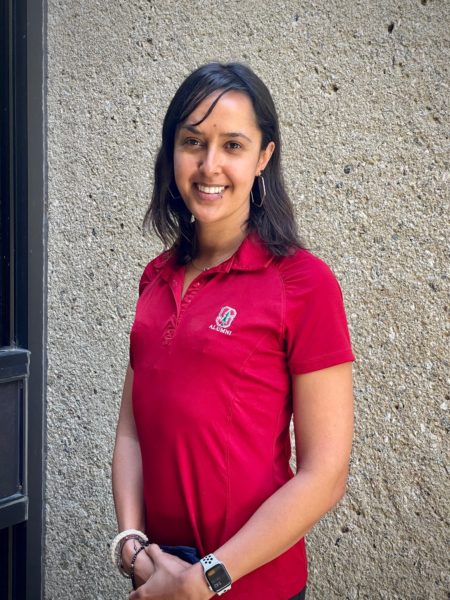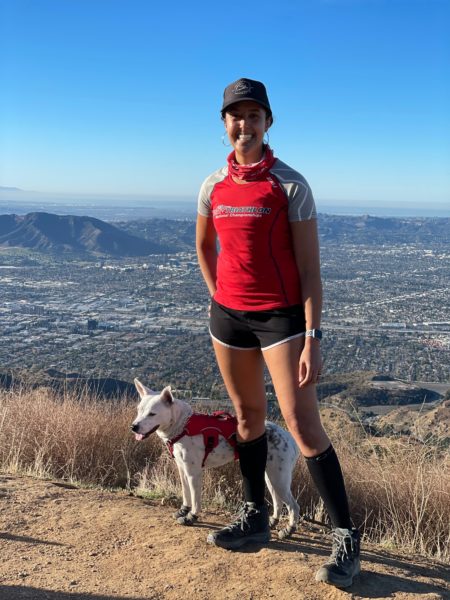Join the Students and Young Professionals Committee Brownbag Luncheon on Mentoring with speaker Kerrie Greenfelder, Kansas City Municipal Water Division Department Manager for Burns & McDonnell and inaugural winner of the 2020 WEF Mentorship Award on June 9 at 12:00 p.m. Students can register for free. Members get a $130 discount before April 23.
Cecilia Dominguez brims with enthusiasm for the clean water profession and eagerly shares it with students interested in the field. And she urges her colleagues to reach out, as well, mentoring upcoming professionals so they might pursue and succeed at a career in preserving and protecting the water environment.

These opportunities to share knowledge and boost interest in water and wastewater may be in the form of one-on-one mentoring, or in larger group sessions where professionals share their career experiences with students. These days, the mentoring may be virtual.
“I tell the students to ask questions,” she says, “and not be intimidated.”
That was an important part of her message to students and at a CWEA brown bag luncheon meeting called Career Pathways in Water/Wastewater, presented virtually last October. Cecilia and four others talked about their experiences in the field and how attendees could get started or continue pursuing a clean water career.
Her journey to her current position as a project engineer with LACSD at the Joint Water Pollution Control Plant in Carson serves as an appropriate model.
“I was always interested in water quality, especially oceans,” she says. “I was good at mathematics and science and went to UC-Irvine.”
There, she took advantage of opportunities to learn and grow. In a project as part of the Labdoo UC Irvine Hub, she helped refurbish laptop computers for students in third world countries and participated in e-recycling of unusable parts. Her senior design project analyzed alternative solutions to urban runoff pollution.
She continued her studies at Stanford, where she developed an interest in wastewater treatment and how it impacted coastal water quality. She earned a master’s degree in environmental/environmental health engineering.
Along the way she took advantage of internships at the Santa Clara Valley Water District and the private firm CLEAResult.
She joined LACSD in 2017, earned her PE in civil engineering, and has worked in special projects at the Carson plant, including water quality, odor control, and solids handling.
In her current job, she is one of four process area engineers, and oversees daily operations at the solids processing area of the plant. Biosolids are digested, dewatered in centrifuges and transported off site for land application.
In addition to asking questions, she encourages newcomers to ask for help. “If you’re applying for a new job,” she says, “don’t be afraid to ask for help. You’re not inconveniencing people by trying to learn.”

“When I started, I was hesitant to ask questions,” she says. “I was a first-generation college student. It made me feel inferior. Then I realized that’s how we learn and grow—by asking questions.”
In this virtual age, it’s okay if students don’t have a direct mentor available, she says. “You can connect virtually with mentors who can help you.”
And that’s where her colleagues come in. In addition to encouraging incoming engineers to seek mentors, she believes it’s just as important that professionals in the field become mentors and help the incoming generation. “I encourage them to talk to young people. They have energy, eagerness and curiosity. They’re all ears. But you have the experience and knowledge, I tell them.
“You have stories. Uploading them to new people helps them hit the ground running,” she says.
And if newcomers don’t seek you out, Dominguez says, don’t be reluctant to reach out to them. “Having a mentor seek out a student is extremely beneficial,” Dominguez says. “They may not know where to look or who to ask.”
Her own experience provides a good example.
She credits one of her environmental engineering professors at UC-Irvine, Bill Cooper, with igniting her career interest and writing a letter of recommendation important to her acceptance at Stanford. “He had a passion and excitement for water quality,” she remembers.